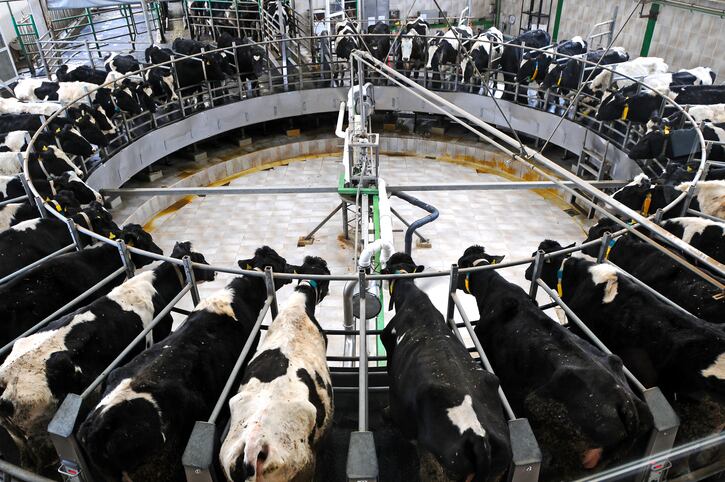The USDA announced an emergency aid package of $12bn in July to help US farmers dealing with surplus food as a result of tariff fluctuations. On Monday it released the first details of how the money would be distributed.
The first payout will be $4.7bn, with $1.2bn going directly toward buying surplus food. Dairy is among the industries that will be assisted first in the Market Facilitation Program, and producers can begin requesting the aid from September 4.
No tolerance policy
President Trump has been feuding with US trading partners over import and export tariffs, and the discussions with Canada, Mexico and China in particular have affected the dairy industry.
With higher rates for trading overseas, US farmers are facing a surplus in production at home. The food bought by the USDA will be given to federal nutrition assistance programs for children and low-income Americans.
According to the USDA, it will purchase about $85m worth of dairy surplus.
Secretary of Agriculture Sonny Perdue said, “President Trump has been standing up to China and other nations, sending a clear message that the United States will no longer tolerate the unfair trade practices, which include non-tariff trade barriers and the theft of intellectual property.”
Pushback at home
Not everyone is reacting positively to the initiative, however. Farmers and organizations have spoken out claiming that it’s only a temporary fix, and more should be done to ensure agriculture is supported permanently.
Jim Mulhern, president and CEO of the National Milk Producers Federation, released a statement saying the plan, “falls far short of addressing the losses dairy producers are experiencing due to trade retaliation resulting from the Trump Administration’s imposition of steel and aluminum tariffs.”
Industry uncertainty has only worsened because the allocation details of this first payment coincided with President Trump’s Monday announcement that he is dismantling the North American Free Trade Agreement (NAFTA), a trade deal between the US, Canada and Mexico.
President Trump has struck a new deal with Mexico, but is still negotiating details with Canada.
“The dairy-specific financial assistance package provided by USDA – centered on an estimated $127m in direct payments – represents less than 10% of American dairy farmers’ losses caused by the retaliatory tariffs imposed by both Mexico and China,” said Mulhern.
Damage in the long and short
According to a study from the US Dairy Export Council (USDEC) and Informa Agribusiness Consulting, the retaliatory tariffs hitting the US could end up costing US dairy farmers $16.6bn in revenues over the next several years unless they are rolled back.
The data only accounts for what tariffs have already been imposed, so the numbers and damage could worsen if the proposed tariffs go into effect and the trade disputes escalate. In the short term, the study predicts that tariffs coming from Mexico and China could cause US dairy farmers to lose $1.5bn in 2018 and $3bn in 2019.
Tom Vilsack, president and CEO of USDEC, said, “The damage is real, and it is being felt by dairy farmers, dairy businesses and dairy exporters every day. Exports hold tremendous potential for our industry and the struggling rural economy, but we must address these tariffs immediately for that potential to be realized.”
Mulhern implored President Trump to find a better solution: “Given [the] other news that the Trump Administration has reached a trade deal with Mexico, we are repeating our request that the administration provide relief to farmers by restoring normal trading conditions so that our product exports to Mexico – as well as to China – are not penalized by retaliatory tariffs.”

